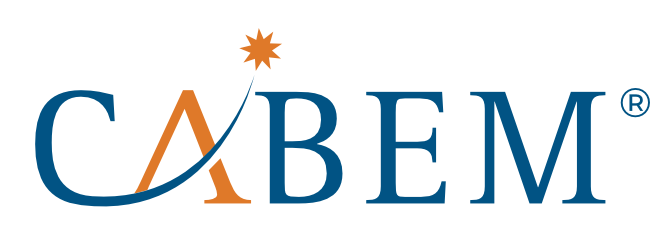Developing Effective Leaders Through Competency Management
Effective leadership stands as a cornerstone for organizational success. However, the path to nurturing proficient leaders isn’t just about innate talent; it requires a strategic approach. Competency management emerges as a pivotal tool in identifying, developing, and honing the skills and behaviors necessary for effective leadership. By establishing clear competencies and employing targeted strategies, organizations can empower their leaders to thrive in complex environments and drive sustained growth.
Competency management involves the systematic identification, cultivation, and assessment of specific skills, knowledge, and behaviors required for successful job performance. It serves as a roadmap for individuals and organizations, outlining the essential attributes needed at various hierarchical levels. By defining these competencies, organizations gain clarity on what makes a successful leader within their unique context, enabling them to align leadership development programs accordingly.
Identifying the necessary competencies for leadership roles involves a comprehensive analysis of the organization’s goals, values, and culture. Effective leaders need a diverse set of skills, including but not limited to, communication, adaptability, strategic thinking, emotional intelligence, decision-making, and empathy. These competencies serve as a foundation upon which leaders can build and refine their abilities, ensuring they can navigate complexities and steer their teams toward success. This blog will examine how competency management has emerged as a vital tool in the arsenal of organizational development, playing a pivotal role in identifying and addressing skill gaps among potential and existing leaders.
3 Competency Management Tools for Providing Valuable Insight
Competency Management is a proactive approach to talent management involving a comprehensive process of assessments, feedback mechanisms, and performance evaluations that collectively provide valuable insights into the developmental needs of leaders.
Competency management begins with a thorough examination of the skills, knowledge, and abilities that leaders possess. Through targeted assessments, organizations can objectively evaluate the competencies of their leaders, allowing for a nuanced understanding of both strengths and weaknesses. This process is not merely about identifying shortcomings but serves as a foundation for strategic decision-making regarding leadership development.
- Feedback mechanisms play a crucial role in competency management, providing leaders with valuable insights into their performance. Constructive feedback enables leaders to understand how their actions impact their teams and the organization as a whole. It fosters a culture of continuous improvement, encouraging leaders to refine their skills and adapt to evolving challenges. Regular feedback loops create an environment where leaders are more receptive to change, driving personal and professional growth.
- Performance evaluations within the competency management framework serve as a cornerstone for gauging leadership effectiveness. These evaluations go beyond the traditional metrics of productivity and efficiency, delving into the specific competencies that are essential for effective leadership. By evaluating leaders based on these competencies, organizations gain a nuanced understanding of where the skill gaps lie and how they can be addressed. The real strength of competency management lies in its ability to inform targeted interventions. Armed with insights from assessments, feedback, and performance evaluations, organizations can design bespoke training programs, mentorship initiatives, and coaching sessions tailored to address the identified skill gaps. This personalized approach ensures that leaders receive the specific support they need to enhance their capabilities.
- Targeted training programs provide leaders with the knowledge and skills required to excel in their roles. Whether it’s technical expertise, communication skills, or strategic thinking, these programs are designed to bridge the identified gaps and empower leaders with the tools necessary for success. Mentorship initiatives connect leaders with seasoned professionals who can provide guidance, share experiences, and offer valuable insights. Coaching sessions, on the other hand, provide a one-on-one developmental experience, allowing leaders to work on specific challenges and refine their leadership style.
Competency management transforms leadership development from a generic process into a strategic initiative. By understanding the unique needs of each leader, organizations can empower them with the right tools and opportunities to lead with confidence and effectiveness. This not only benefits individual leaders but also contributes to the overall success and sustainability of the organization in a rapidly changing business landscape. As organizations continue to invest in competency management, they pave the way for a future where leadership is not just a position but a dynamic and evolving skill set.
Furthermore, fostering a culture that prioritizes continuous learning and growth is vital in nurturing effective leaders. Competency management reinforces this culture by emphasizing the importance of ongoing skill enhancement. Leaders are encouraged to engage in self-reflection, seek feedback, and actively participate in learning activities that enhance their competencies. This dedication to personal and professional growth not only benefits the leaders themselves but also cascades positive effects throughout the organization.
Competency Software Is a Key Component in Leadership Success
The role of competency management software in this process cannot be overstated. These technological solutions streamline and automate various aspects of competency management, making the process more efficient and accurate. Such software facilitates the creation and maintenance of comprehensive competency frameworks tailored to an organization’s specific needs. It enables real-time tracking of individual and group competencies, simplifying the identification of skill gaps and the design of targeted development plans.
Moreover, competency management software often includes features such as personalized learning paths, resource libraries, and progress tracking, offering leaders a centralized platform for their development journey. The accessibility and user-friendly interface of these tools encourage active participation, allowing leaders to take ownership of their growth while receiving necessary support from the organization.
Effective leadership is not just a product of innate qualities but a result of continuous development and refinement of skills and behaviors. Competency management serves as a guiding framework that enables organizations to identify, nurture, and enhance the capabilities of their leaders. By leveraging competency management strategies and investing in dedicated software solutions, organizations can cultivate a robust leadership pipeline, fostering a culture of excellence and adaptability that propels them toward sustained success in today’s dynamic business environment.
The CABEM Competency Manager is a comprehensive workforce development system that offers a centralized view of an organization’s competency framework, covering various aspects like location, department, role, and individual performance. Unlike traditional Learning Management Systems (LMS), CABEM recognizes that competency is achieved through a combination of formal and experiential learning methods. The platform integrates multiple learning and development completion methods, including witnessing, approvals, and traditional LMS techniques, eliminating the need for manual record-keeping with document libraries. It facilitates compliance with quality management standards through learning pathways, document tracking, version control, and archived training materials, making audits more seamless. Additionally, the platform enhances overall enterprise efficiency by managing risk, automating certifications, and generating reports based on actionable data. Visit our website for more information.

